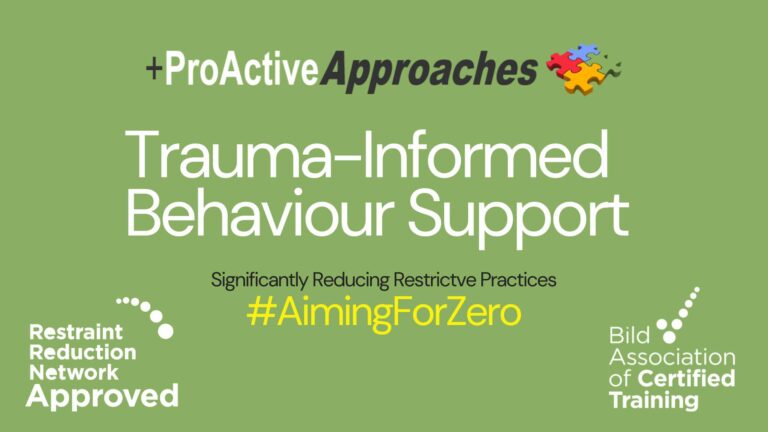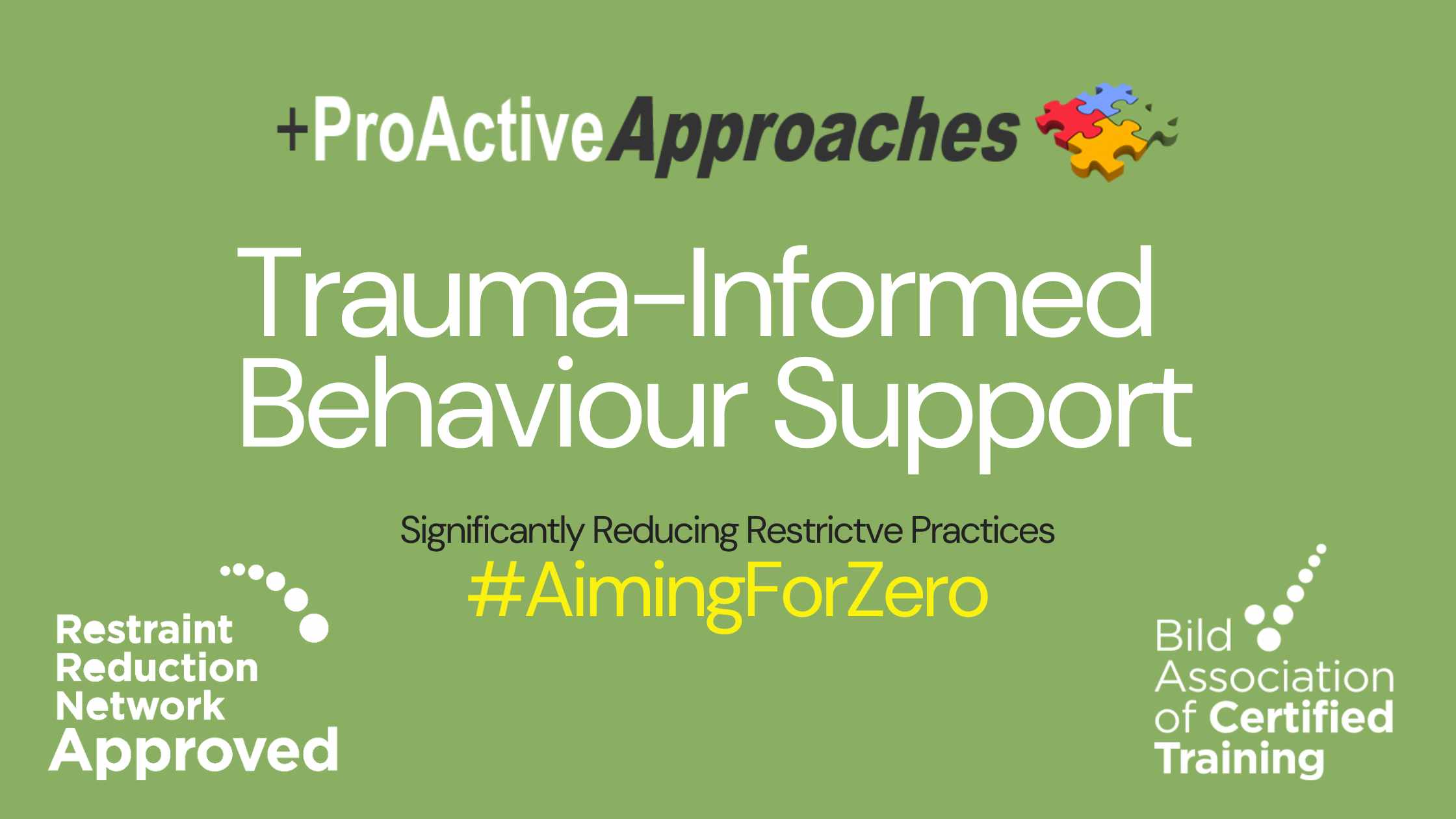Welcome to our blog post on “Positive Behaviour Support Training for Children’s Homes.” In this article, we will explore the importance of implementing positive behaviour support training in children’s homes and the significant impact it can have on the overall well-being and development of the children.
Understanding the Basics: What is Positive Behaviour Support
Positive Behaviour Support (PBS) is an evidence-based approach that aims to improve the quality of life for individuals with challenging behaviours. It focuses on understanding the underlying causes of behaviour and implementing strategies to teach and reinforce positive behaviours rather than relying on punishment and control.
Why is Positive Behaviour Support Training Essential in Children’s Homes
Children’s homes provide a supportive and nurturing environment for children who may have experienced trauma or have complex needs. Positive Behaviour Support training is essential in these settings because it equips staff with the knowledge and skills to effectively manage challenging behaviours, promote positive interactions, and create a safe and supportive environment for the children.
The Role of Positive Behaviour in Child Development
Positive behaviour plays a crucial role in a child’s overall development. It enhances their social skills, emotional well-being, and academic performance. By promoting positive behaviours, children can build healthy relationships, develop self-control, and achieve their full potential.
The Impact of Negative Behaviour on Children
Negative behaviours can have a detrimental impact on children’s well-being and development. It can lead to strained relationships, poor self-esteem, and hinder their ability to learn and thrive. By addressing negative behaviours and providing appropriate support, children can overcome challenges and develop more positive coping mechanisms.
How Positive Behaviour Support Training Can Make a Difference
Positive Behaviour Support training equips staff with a range of effective strategies and techniques to manage challenging behaviours in a supportive and compassionate manner. It empowers them to understand the underlying causes of behaviours, implement proactive interventions, and promote positive alternatives. This training enables staff to create a therapeutic environment where children feel valued, safe, and supported.
Components of Positive Behaviour Support Training
Positive Behaviour Support training consists of various components that are essential for its successful implementation in children’s homes:
- Understanding Behaviour and Its Causes: This component focuses on developing a deep understanding of the factors that influence behaviour, such as past experiences, communication difficulties, or unmet needs.
- Strategies for Encouraging Positive Behaviour: This component involves teaching staff effective strategies to reinforce and encourage positive behaviours through positive reinforcement, modelling, and setting clear expectations.
- Techniques for Managing Challenging Behaviour: This component equips staff with techniques to de-escalate challenging situations, implement appropriate consequences, and teach children alternative ways to express their needs and emotions.
Implementing Positive Behaviour Support Training in Children’s Homes
Implementing positive behaviour support training requires a holistic approach to create a positive environment where children can thrive. This involves:
- Creating a Positive Environment: Children’s homes should provide a nurturing and structured environment that promotes positive behaviour. This includes establishing clear rules, routines, and expectations, as well as providing opportunities for positive social interactions and emotional support.
- Regular Training and Coaching: Ongoing training and coaching are crucial to ensure staff have the necessary skills and knowledge to effectively implement positive behaviour support strategies. This includes regular professional development sessions, workshops, and individual coaching sessions.
- Monitoring and Evaluating the Effectiveness of the Training: Regular monitoring and evaluation of the training program help identify areas of improvement and ensure that positive behaviour support strategies are being effectively implemented and positively impacting the children’s well-being.
In conclusion, positive behaviour support training is vital in children’s homes to foster a positive environment, promote healthy development, and effectively manage challenging behaviours. By understanding the basics, implementing effective strategies, and creating a supportive culture, children’s homes can provide the best possible care for the children in their care. Stay tuned for more insights on positive behaviour support training!
Understanding the Basics: What is Positive Behaviour Support
Positive Behaviour Support (PBS) is an evidence-based approach that focuses on understanding and addressing the underlying causes of challenging behaviours. It seeks to promote positive behaviours by implementing proactive strategies and providing individuals with the necessary skills and supports to succeed.
What is the Purpose of Positive Behaviour Support?
The primary goal of positive behaviour support is to improve the quality of life for individuals with challenging behaviours. It aims to create an environment that fosters positive interactions, enhances social skills, and promotes overall well-being. By addressing the root causes of challenging behaviours, PBS seeks to replace them with more adaptive and socially acceptable behaviours.
Key Principles of Positive Behaviour Support
- Person-Centered Approach: Positive behaviour support recognizes that each individual is unique and requires individualized support. It involves understanding the individual’s strengths, preferences, and needs to develop tailored strategies.
- Focus on Prevention: Rather than reacting to challenging behaviours, positive behaviour support emphasizes proactive strategies to prevent the occurrence of problem behaviours. This includes identifying triggers, modifying environments, and teaching alternative behaviours.
- Functional Assessment: A fundamental aspect of positive behaviour support is conducting a functional assessment to determine the underlying causes of challenging behaviours. This involves analyzing the antecedents, behaviours, and consequences to identify patterns and potential functions of the behaviour.
- Skill Building: Positive behaviour support aims to teach individuals new skills and alternative ways of expressing their needs. This includes providing appropriate supports, teaching communication and problem-solving skills, and reinforcing positive behaviours.
- Collaboration and Teamwork: Successful implementation of positive behaviour support requires collaboration among all stakeholders involved, including caregivers, educators, therapists, and other professionals. It involves sharing information, coordinating efforts, and working together towards common goals.
The ABCs of Positive Behaviour Support
To understand and address challenging behaviours effectively, positive behaviour support utilizes the ABC framework:
- Antecedents: Antecedents are events or circumstances that precede the occurrence of a behaviour. They can be environmental factors, social situations, or internal states. By identifying antecedents, we can gain insights into triggers for challenging behaviours.
- Behaviours: Behaviours refer to the actions or responses exhibited by an individual. Positive behaviour support focuses on analyzing and understanding the function and purpose of these behaviours.
- Consequences: Consequences are the events that follow a behaviour. They can be positive, such as praise or rewards, or negative, such as reprimands or removal of privileges. Understanding the consequences helps in determining whether they are reinforcing or maintaining the challenging behaviour.
The Role of Positive Behaviour Support in Various Settings
Positive behaviour support can be applied in various settings, including schools, homes, residential facilities, and community-based programs. Its principles and strategies can be adapted to address the specific needs and challenges of each setting.
In schools, positive behaviour support can create a positive and inclusive learning environment, reduce disruptions, and improve academic outcomes. In homes, it can support parents and caregivers in managing challenging behaviours and promoting positive family dynamics. In residential facilities, positive behaviour support can enhance the overall well-being of residents and improve their ability to live successfully in the community.
Understanding the basics of positive behaviour support provides a foundation for implementing effective strategies and interventions. By focusing on prevention, individualized support, and collaboration, positive behaviour support can create positive and nurturing environments that promote the well-being and success of individuals with challenging behaviours.
Why is Positive Behaviour Support Training Essential in Children’s Homes
Positive Behaviour Support (PBS) training is essential in children’s homes to ensure the well-being and positive development of the children in their care. Here are several key reasons why PBS training is crucial in this setting:
1. Promoting a Positive and Nurturing Environment
Children’s homes aim to provide a safe and supportive environment for children who may have experienced trauma or have complex needs. PBS training equips staff with the knowledge and skills to create a positive and nurturing environment that fosters the overall well-being of the children. By promoting positive interactions, setting clear expectations, and reinforcing appropriate behaviours, PBS training helps establish a culture of respect, trust, and emotional safety.
2. Understanding the Impact of Challenging Behaviours
Children in residential care may exhibit challenging behaviours due to various factors such as trauma, attachment issues, or unmet needs. PBS training helps staff understand the underlying causes of these behaviours and provides strategies to effectively address them. By gaining insight into the root causes of challenging behaviours, staff can respond with empathy and compassion, minimizing the risk of further distress or harm to the children.
3. Enhancing Support for Emotional and Behavioural Needs
Children in residential care often require additional support for their emotional and behavioural needs. PBS training equips staff with a range of evidence-based strategies to effectively support children in managing their emotions, developing coping mechanisms, and improving their overall behavioural functioning. This training helps staff recognize early signs of distress, implement appropriate interventions, and provide the necessary support to help children regulate their emotions and behaviours.
4. Empowering Staff with Effective Behaviour Management Techniques
Children’s homes require staff to have the skills to manage challenging behaviours effectively. PBS training provides staff with a toolbox of behaviour management techniques that focus on prevention, positive reinforcement, and the teaching of alternative behaviours. By utilizing these techniques, staff can effectively de-escalate challenging situations, redirect negative behaviours, and teach children more adaptive ways of expressing their needs and emotions.
5. Collaborating with Other Professionals and Caregivers
Children’s homes often work in collaboration with other professionals, including therapists, educators, and social workers, to provide comprehensive care for the children. PBS training facilitates effective collaboration and communication among these stakeholders. By sharing knowledge, strategies, and insights, professionals can work together to create a cohesive approach that supports the children’s behavioural, emotional, and educational needs.
6. Ensuring Consistency in Behavioural Support
Consistency is crucial in supporting children with challenging behaviours. PBS training ensures that all staff members are equipped with the same knowledge and techniques, promoting consistency in behaviour management approaches across the children’s home. This consistency helps to establish clear boundaries and expectations for the children, reducing confusion and promoting a sense of stability and security.
In conclusion, Positive Behaviour Support training is essential in children’s homes to create a positive and nurturing environment, understand and address challenging behaviours, enhance support for emotional and behavioural needs, empower staff with effective techniques, facilitate collaboration with other professionals, and ensure consistency in behavioural support. By implementing PBS training, children’s homes can provide the best possible care and support for the children in their care, promoting their overall well-being and positive development.
Components of Positive Behaviour Support Training
Positive Behaviour Support (PBS) training consists of several key components that are essential for its effective implementation in children’s homes. These components provide staff with the necessary knowledge and skills to understand behaviour, encourage positive behaviours, and effectively manage challenging behaviours. Let’s explore the key components of PBS training:
1. Understanding Behaviour and Its Causes
To effectively support positive behaviour, staff must have a deep understanding of behaviour and its underlying causes. This component of PBS training focuses on providing staff with knowledge about the various factors that influence behaviour, such as environmental triggers, communication difficulties, unmet needs, and past experiences. By understanding the root causes of behaviour, staff can respond in a more empathetic and effective manner.
2. Strategies for Encouraging Positive Behaviour
This component of PBS training equips staff with a range of strategies to encourage and reinforce positive behaviours. It involves teaching staff how to set clear expectations, provide positive reinforcement, and use effective praise and rewards. Staff learn how to create a supportive environment that promotes positive behaviours and motivates children to engage in desired behaviours.
3. Techniques for Managing Challenging Behaviour
Managing challenging behaviours is a critical aspect of PBS training. This component focuses on providing staff with various techniques and approaches to effectively manage and de-escalate challenging situations. Staff learn how to implement appropriate consequences, use calming techniques, and teach children alternative ways to express their needs and emotions. By employing these techniques, staff can respond to challenging behaviours in a calm and supportive manner, reducing the likelihood of escalation and promoting positive outcomes.
4. Collaboration and Teamwork
Collaboration and teamwork are essential components of PBS training. Children’s homes often involve a multidisciplinary team of professionals, including caregivers, therapists, educators, and administrators. This component of PBS training emphasizes the importance of effective communication, sharing information, and working together to support positive behaviour. Staff learn how to collaborate with other professionals, exchange insights and strategies, and collectively develop individualized plans to address challenging behaviours.
5. Data Collection and Analysis
Data collection and analysis play a crucial role in PBS training. Staff learn how to collect and analyze data related to behaviour, such as tracking the frequency, duration, and antecedents of challenging behaviours. This data helps identify patterns, determine the effectiveness of interventions, and make informed decisions about behaviour support plans. By utilizing data-driven approaches, staff can continuously monitor progress, adjust strategies as needed, and ensure the effectiveness of the PBS program.
6. Ongoing Professional Development
PBS training is not a one-time event but an ongoing process. This component emphasizes the importance of continuous professional development for staff. Regular training sessions, workshops, and coaching sessions are provided to update staff on the latest research, techniques, and best practices related to positive behaviour support. Ongoing professional development ensures that staff stay informed, motivated, and equipped with the necessary skills to effectively support positive behaviour in children’s homes.
By incorporating these key components into PBS training, children’s homes can provide staff with a comprehensive understanding of behaviour, effective strategies for promoting positive behaviour, techniques for managing challenging behaviours, collaborative approaches, data-driven decision-making, and ongoing professional development. These components form the foundation for implementing positive behaviour support and creating a supportive and nurturing environment for the children in their care.
Implementing Positive Behaviour Support Training in Children’s Homes
Implementing positive behaviour support training in children’s homes requires a comprehensive approach that focuses on creating a positive environment, providing ongoing training and coaching, and monitoring and evaluating the effectiveness of the training. Let’s explore the key steps involved in implementing positive behaviour support training in children’s homes:
1. Creating a Positive Environment
Creating a positive environment is crucial for implementing positive behaviour support in children’s homes. This involves establishing clear rules, routines, and expectations that promote positive behaviours. Staff should work together to create a safe, supportive, and inclusive environment where children feel valued, respected, and emotionally secure. By fostering positive relationships and providing opportunities for social interactions, children are more likely to engage in positive behaviours.
2. Regular Training and Coaching
Positive behaviour support training is an ongoing process that requires regular training and coaching for staff. Children’s homes should provide initial training to introduce staff to the principles and strategies of positive behaviour support. Additionally, regular professional development sessions and workshops should be conducted to update staff on new research, techniques, and best practices. Individual coaching sessions can also be beneficial in addressing specific challenges and providing personalized support to staff.
3. Monitoring and Evaluating the Effectiveness of the Training
To ensure the effectiveness of positive behaviour support training, it is essential to monitor and evaluate its impact on the children’s behaviour and overall well-being. This can be done through data collection and analysis, such as tracking behaviour incidents, gathering feedback from staff and children, and conducting regular assessments. Monitoring and evaluation help identify areas for improvement, adjust strategies as needed, and ensure that the training is positively impacting the children’s lives.
4. Collaboration with External Professionals
Children’s homes can benefit from collaborating with external professionals, such as behaviour analysts, therapists, and educational consultants, to enhance the implementation of positive behaviour support. These professionals can provide additional expertise, conduct assessments, develop behaviour support plans, and offer guidance and support to staff. Collaborating with external professionals ensures a comprehensive and well-rounded approach to positive behaviour support in children’s homes.
5. Building Partnerships with Families and Caregivers
Incorporating families and caregivers into the positive behaviour support process is essential. Children’s homes should actively involve families in the development and implementation of behaviour support plans. Regular communication, sharing of information, and collaboration with families and caregivers can enhance consistency and reinforce positive behaviours across different settings. By building partnerships with families, children’s homes can create a cohesive and supportive approach to promoting positive behaviour.
By implementing positive behaviour support training, creating a positive environment, providing ongoing training and coaching, monitoring and evaluating the effectiveness of the training, collaborating with external professionals, and building partnerships with families, children’s homes can establish a comprehensive and effective positive behaviour support program. This holistic approach promotes positive behaviours, enhances the well-being of the children, and creates an environment where they can thrive and reach their full potential.





